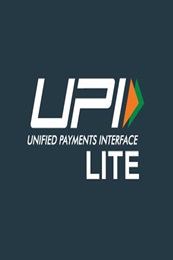Check Bounce: Causes, Charges, Implications and Preventive Measures
April 15, 2025

A cheque is a trusted financial instrument, but when it bounces, it can cause inconvenience, legal trouble, and financial loss. In this article, we delve into the concept of cheque bounce, its causes, implications, and how to avoid such situations.
What is a Bounced Cheque?
A bounced cheque, also known as a dishonoured cheque, occurs when a bank refuses to process a cheque for payment. This can happen for various financial and non-financial reasons. When a cheque bounces, both the issuer (drawer) and the recipient (payee) face consequences, ranging from penalties to legal action.
A cheque bounce often arises due to issues like insufficient funds, incorrect dates, or mismatched signatures. Beyond financial inconvenience, repeated instances can lead to reputational harm and difficulties in obtaining credit or conducting business transactions.
Common Reasons for Cheque Bounce
Insufficient Funds
The most frequent cause of cheque bounce is insufficient balance in the issuer’s account to cover the cheque amount.
Incorrect Date
Post-dated cheques presented before the mentioned date or cheques with outdated dates (over three months old) are rejected.
Signature Mismatch
If the signature on the cheque does not match the bank’s records, the cheque will be dishonoured.
Account Closure
Cheques drawn from closed accounts are automatically rejected.
Technical Errors
Damage to the cheque, overwriting, or discrepancies in the amount written in words and figures can lead to rejection.
Non-Maintenance of Minimum Balance
Banks require a minimum balance; failure to maintain it may result in cheque bounce.
Expired Cheque Validity
Cheques are valid for three months from the date of issue. Beyond this period, they are deemed invalid.
Torn or Damaged Cheque
Physical damage to the cheque can make it unreadable, leading to rejection.
Legal Implications of Cheque Bounce
Under Section 138 of the Negotiable Instruments Act, 1881, cheque bounce due to insufficient funds is a punishable offence. Legal consequences include:
- Fines: Up to twice the cheque amount.
- Imprisonment: A term of up to two years.
- Civil Suit: For recovery of the cheque amount without criminal penalties.
Steps in Legal Action
- Notice Issuance: The payee sends a cheque bounce notice within 30 days of receiving the bank’s memo.
- Response Period: The drawer has 15 days to pay the cheque amount.
- Court Complaint: If unresolved, the payee can file a complaint in court within 30 days after the 15-day period.
Failure to adhere to these timelines may weaken the legal case against the drawer.
Bounced Cheque Fees and Penalties
Both issuers and payees may incur fees for a bounced cheque. Repeated instances can:
- Damage credit scores.
- Lead to higher penalties.
- Result in account closure or restrictions.
Banks typically charge both the issuer and the payee a cheque bounce fee, which varies across financial institutions. Additionally, legal fees may be incurred if the matter escalates to court.
New RBI Rule on Cheque Bounce
In August 2021, the Reserve Bank of India (RBI) issued a directive mandating that customers who heavily rely on cheques or plan to use them must maintain a minimum balance in their bank accounts. If the required minimum balance is not maintained, the cheque will bounce. Furthermore, the cheque issuer may incur a penalty fee.
The RBI also announced that the National Automated Clearing House (NACH) would operate 24/7, including Sundays and holidays, to facilitate faster and smoother cheque processing. These regulations apply to all national and private banks, ensuring seamless cheque clearance even on non-business days. The changes aim to enhance the efficiency of cheque transactions while encouraging customers to maintain adequate funds in their accounts.
Cheque Bounce Solutions You May Consider
1. Requesting a New Cheque
If a cheque is dishonoured due to issues such as overwriting, mismatched signatures, discrepancies between the amount in words and figures, or physical damage, the payee can ask the drawer to issue a fresh cheque. If the drawer declines this request, the payee has the option to file a civil suit to recover the money owed. However, this approach addresses the payment due rather than the cheque bounce itself.
2. Issuing a Cheque Bounce Notice (Section 138 of the Negotiable Instruments Act)
A cheque bounce notice under Section 138 of the Negotiable Instruments Act can only be sent when the cheque fails due to insufficient funds in the drawer’s account. For other reasons, such as technical errors, a notice demanding reissuance of the cheque is appropriate rather than a legal action for cheque bounce.
Procedure for Sending a Cheque Bounce Notice
When a cheque is returned due to insufficient funds, the payee must follow these steps:
- Drafting and Sending the Notice: The payee should send a formal cheque bounce notice via post, explicitly stating that the cheque has been dishonoured due to inadequate funds.
- Timelines: This notice must be sent within 30 days of receiving the bank's intimation of the cheque bounce.
- Demand Period: The drawer must be given 15 days from the date they receive the notice to clear the amount.
If the drawer fails to make the payment within the stipulated 15 days, the payee can file a legal case within 30 days following the expiry of the demand period.
However, no cheque bounce notice can be issued if the cheque was given as a gift, donation, or to fulfill an obligation that lacks legal enforceability. To pursue action under Section 138, the cheque must have been issued to settle a legitimate debt or liability.
Legal Action After Notice Period Ends
If the drawer does not make the payment within the 15-day demand period, the payee can initiate legal proceedings.
- The complaint must be filed under Section 138 of the Negotiable Instruments Act in a court of competent jurisdiction.
- Since cheque bounce due to insufficient funds is treated as a criminal offence, the case will proceed as a criminal matter.
Where to File the Complaint
The complaint can be filed in the following locations:
- The place where the cheque was issued.
- The location where the cheque was deposited for payment.
- The place where the payment was expected to be made.
- The location where the cheque was dishonoured.
- The area where the notice of demand was served.
Cases in metropolitan areas must be filed before the Metropolitan Magistrate, while cases in other regions should be filed before the Judicial Magistrate.
Cheque Bounce Involving Companies
When a company issues a cheque that bounces due to insufficient funds, legal action can also be taken against the company under Section 148 of the Negotiable Instruments Act.
- The case can implicate both the company and its directors.
- If convicted, penalties may include fines or imprisonment for the directors and other responsible parties.
Resolution Before Legal Action
If the drawer settles the cheque amount within 15 days of receiving the cheque bounce notice, no offence is deemed to have occurred, and no legal action can be pursued under Section 138.
By adhering to these procedures, payees can ensure their legal rights are protected, while drawers have the opportunity to rectify their mistakes and avoid further consequences.
How to Avoid Cheque Bounce
- Maintain Sufficient Funds: Ensure your account balance covers all issued cheques.
- Monitor Transactions: Keep track of cheques issued and account balance.
- Overdraft Facility: Use an overdraft service to prevent fund shortages.
- Verify Details: Double-check the date, amount, and signature on the cheque.
- Communicate with Payees: Notify payees if there are potential delays.
- Opt for Digital Payments: Reduce reliance on cheques for high-value transactions.
- Set Alerts: Enable SMS or email alerts for low balances and cheque clearances.
- Educate Stakeholders: Ensure employees and associates handling cheques are aware of proper procedures.
Final Thoughts
Always maintain sufficient balance to avoid cheque bounce. Additionally, be extra careful while writing a cheque to avoid errors that may lead to a bounced cheque.
Enjoy easy banking with Ujjivan Small Finance Bank. Save more with our high-interest Savings Account and Deposit products. Need cash for your business or personal needs? Apply for MSME Loans or Micro Loans with us – we offer competitive rates and quick disbursal. We also offer vehicle loans and home loans tailored for your unique requirements. Experience a smooth banking journey with Ujjivan SFB!
FAQs
1. What happens when a cheque bounces?
The bank rejects the cheque, and the payee receives a return memo stating the reason. Penalties and legal implications may follow.
2. Can a bounced cheque be reissued?
Yes, if the bounce was due to technical errors or mismatched details, a corrected cheque can be issued.
3. Is cheque bounce a criminal offence?
Yes, under Section 138 of the Negotiable Instruments Act, cheque bounce due to insufficient funds is a criminal offence.
4. How long is a cheque valid in India?
Cheques are valid for three months from the date of issue.
5. What is the penalty for cheque bounce?
Penalties vary but may include bank fees, legal fines, or imprisonment for up to two years.
6. How can payees respond to a bounced cheque?
Payees can send a legal notice to the drawer and initiate legal proceedings if the payment is not made within 15 days.
7. Can a cheque bounce affect my credit score?
Yes, repeated cheque bounces can negatively impact your credit score.
8. Are companies liable for bounced cheques?
Yes, companies and their directors can face legal action under Section 148 of the Negotiable Instruments Act.
9. Can a cheque bounce due to overwriting?
Yes, cheques with overwriting or corrections are often rejected.
10. How can I dispute a cheque bounce case?
Consult a legal expert to draft a response to the cheque bounce notice or defend your case in court.
Latest Blogs

Telangana Housing Board & KPHB Colony: A Guide to Affordable Urban Housing in Hyderabad
March 14, 2025
As Telangana continues its rapid urbanisation journey, two key housing entities—Telangana Housing Board (THB) and Kukatpally Housing Board Colony (KPHB)—have played critical roles in shaping the state's real estate ecosystem.

Does Checking CIBIL Score Frequently Lower Your Credit Points?
April 07, 2025
Imagine you're planning to apply for a home loan, a credit card, or even a car loan. Naturally, you want to ensure your CIBIL score is in good shape before proceeding.

Explained: Can NRIs Buy an Agricultural Land in India?
April 03, 2025
Real estate investment is often a top priority for Non-Resident Indians (NRIs) looking to retain strong financial ties to India.

How to Improve Your CIBIL Score from 600 to 750: A Step-by-Step Guide
April 02, 2025
Your CIBIL score is like your financial reputation—banks check it before approving loans or credit cards. If your score is hovering around 600, you might face difficulties in securing credit or may get loans with higher interest rates.

What Happens When You Leave Your Savings Account Unused?
April 01, 2025
Imagine waking up one day to find that your hard-earned money is locked away and inaccessible. Sounds stressful, right? This is precisely what happens when you leave your Savings Account inactive for too long.





